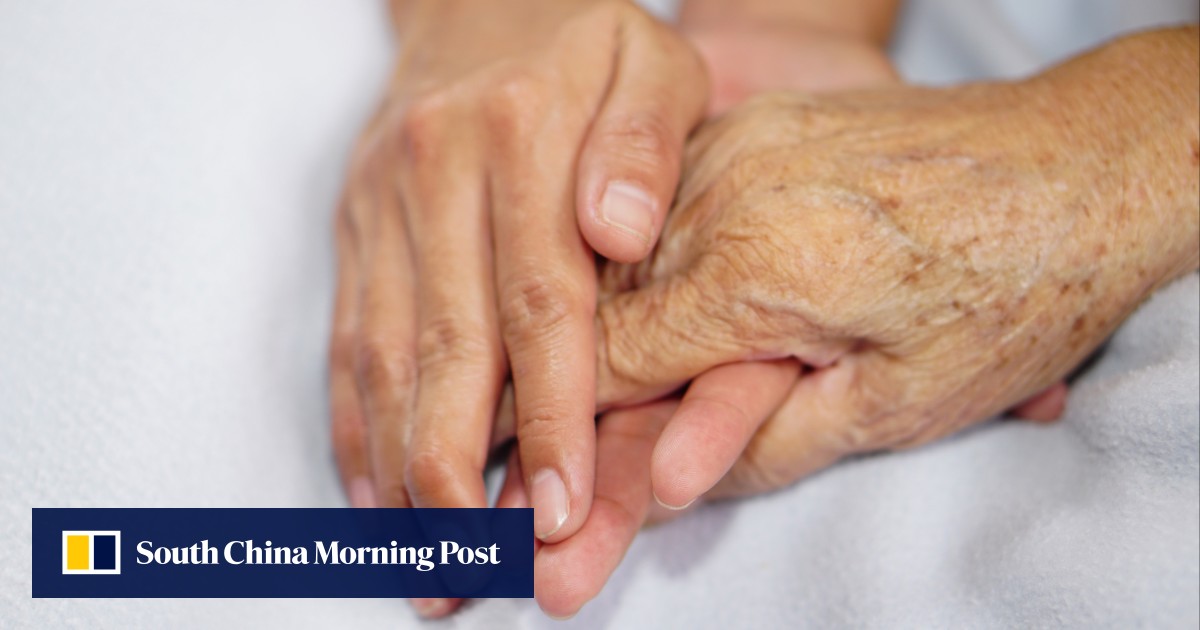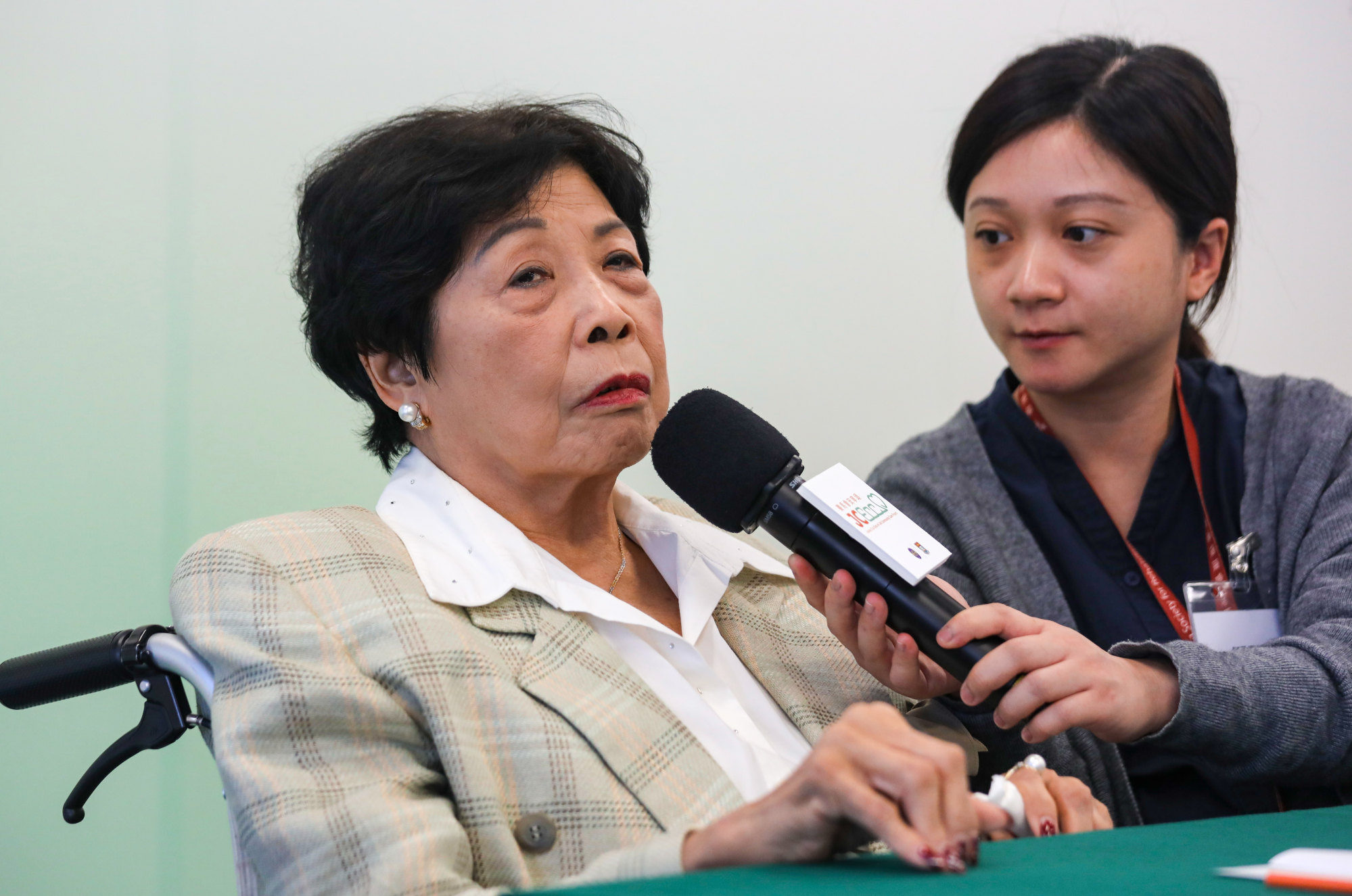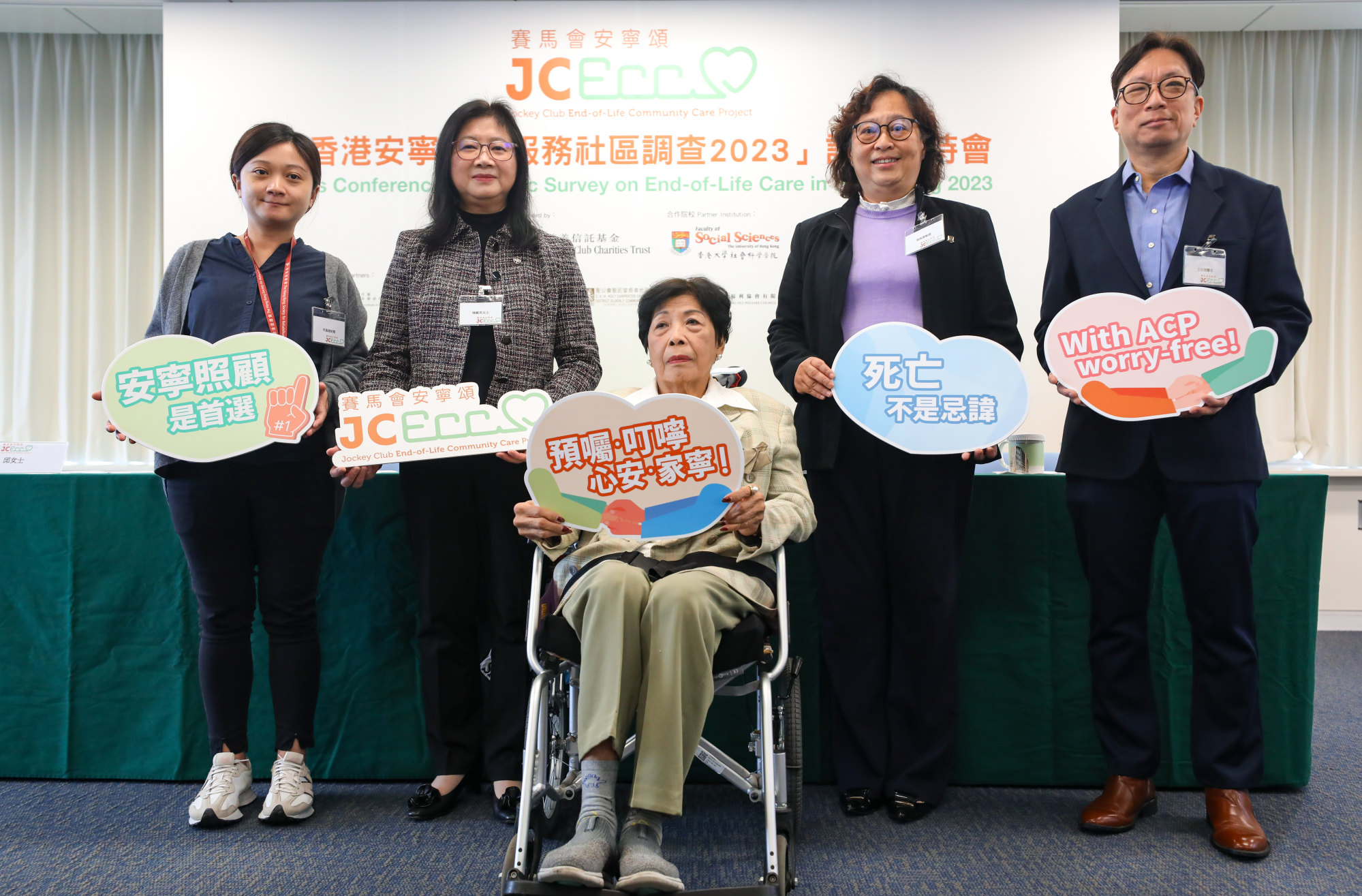‘Death is not a taboo’: three-quarters of respondents to Hong Kong survey willing to set up advance medical directives

About three-quarters of Hongkongers are willing to set up advance medical directives to reject certain treatments if they are dying, a survey has found, as lawmakers scrutinise a proposed bill to give legal status to such documents.
The survey results released on Tuesday also found that nearly half of the respondents backed the idea of their family members dying at home.
“Death is not a taboo for Hongkongers. They are willing to listen about, discuss and draft medical directives or advance care planning,” said Professor Amy Chow Yin-man, project director of the Jockey Club End-of-Life Community Care Project, which organised the survey.

The survey, which focused on the public’s understanding of local end-of-life care, interviewed 1,506 adults by phone between July and October last year.
The University of Hong Kong’s faculty of social sciences, a partner of the Jockey Club project, commissioned a research firm to carry out the survey.
Launched in 2016, the 10-year project aims to improve the quality of end-of-life care in Hong Kong.
Hongkongers may be able to give digital advance directives under official proposal
Hongkongers may be able to give digital advance directives under official proposal
While 75.3 per cent of respondents had not heard of advance directives before, about 70 per cent of them said they were willing to set them up after they were provided with an explanation of what they were.
Overall, 74.4 per cent of respondents supported setting up advance directives for themselves, while another 60.7 per cent backed the idea of their family members drafting such documents.
Some Hong Kong patients use advance directives, but the lack of legal status for the document can cause misunderstandings or disputes between patients’ family members and healthcare professionals.
In May last year, the government put forth end-of-life care legislative proposals, including advance directives. Legal protection would also be provided to healthcare professionals and paramedics who respected a patient’s wish stated in the document.
Hong Kong lawmakers call for database for patients’ end-of-life instructions
Hong Kong lawmakers call for database for patients’ end-of-life instructions
A bills committee was recently formed in the Legislative Council to scrutinise the newly proposed Advance Decision on Life-sustaining Treatment Bill. Some current legislation will also be amended to allow people to go through simpler processes if they die in residential care homes for the elderly or disabled.
While currently most people in Hong Kong spend their last days in hospital, the survey found that about a quarter of the participants hoped to receive end-of-life care in a hospice, and slightly over a fifth preferred staying at home for care.
As high as 83.7 per cent of those surveyed said they would continue to stay in the flat where their family members had died.

Dying at home currently does not require a coroner’s investigation if a terminally ill person died due to natural causes or a patient was attended to by a doctor within 14 days of death. The death must also be certified by a doctor.
Chow, also heading the university department of social work and social administration, said she believed that the government and the healthcare sector would try to provide additional support if more people opted for dying outside hospitals.
Hong Kong’s terminally ill may have more say in medical treatments and deaths
Hong Kong’s terminally ill may have more say in medical treatments and deaths
Yau Pui-ling, an 80-year-old patient with late-stage Parkinson’s disease, signed a medical directive in 2021 to indicate her treatment options when she was terminally ill.
“I don’t want to suffer and want to pass away naturally,” Yau said.
She had stated she did not want to receive intubation for breathing, tube feeding or electric resuscitation shock if she was dying.
“I have suffered from this disease for more than 20 years,” she said. “I felt happy after signing this directive.”
link





